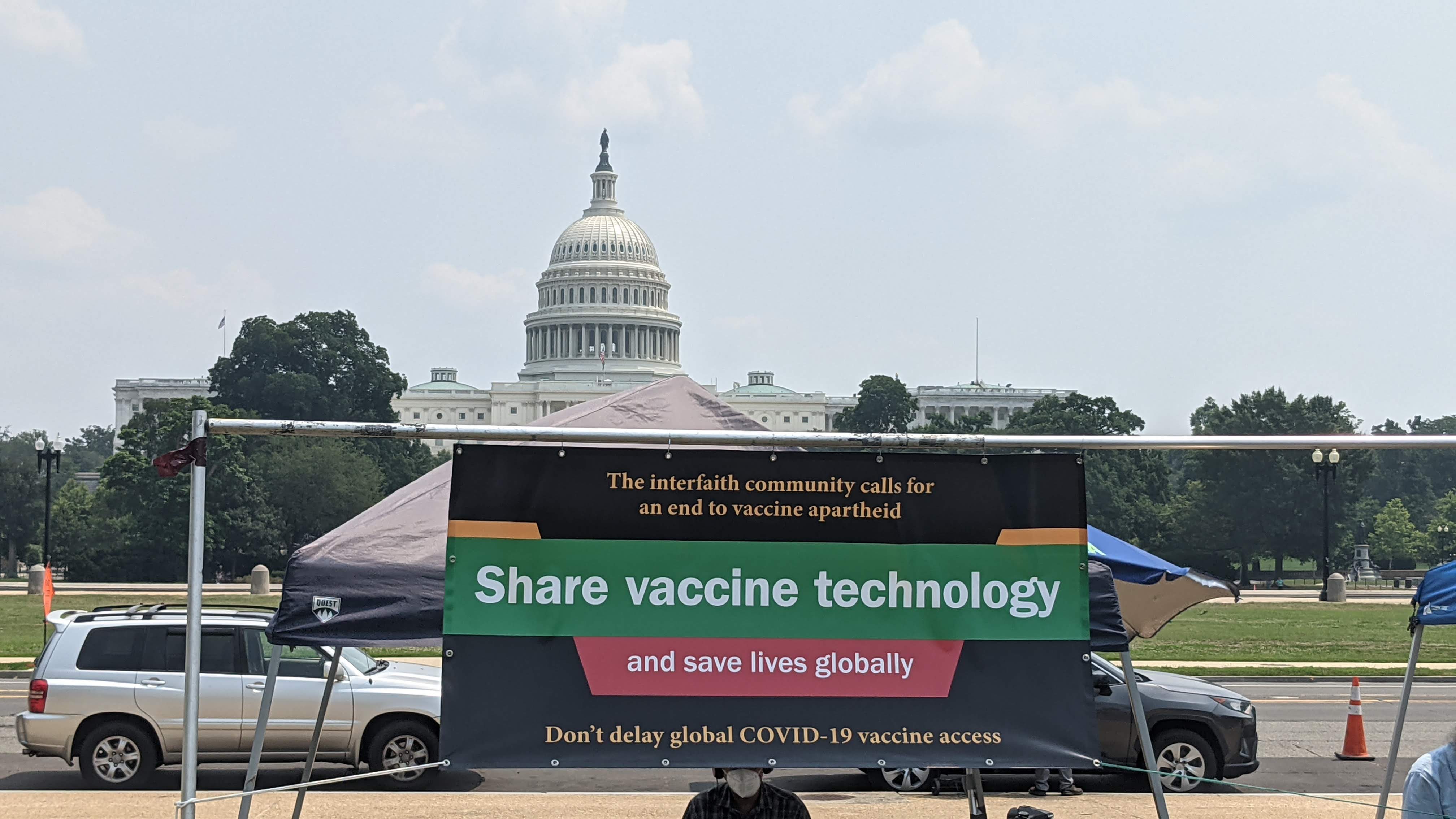Global Concerns Brief: Vaccine Access
The Maryknoll Office for Global Concerns is producing a series of two-page policy issue briefs on key global concerns topics. This is an excerpt from the latest brief on COVID-19 vaccine access.
The Maryknoll Office for Global Concerns is producing a series of two-page policy issue briefs on key global concerns topics. This is an excerpt from the latest brief on COVID-19 vaccine access. The following article was published in the March-April 2022 issue of NewsNotes.
See:
By the end of 2020, the ten wealthiest countries in the world had administered 75% of total COVID-19 vaccine doses. Two years later, extreme inequality in vaccine access persists. While populations in wealthy countries are getting much-needed boosters, only 10% of people in low-income countries have received at least one dose.
Nearly one million from the U.S. and six million people worldwide have died from COVID-19 since the first outbreak in 2020. These figures are likely undercounted due to access to testing and reporting, especially in developing countries.
The group of the world’s 20 largest economies (G20) has committed to vaccinating 70% of the global population by mid-2022. In addition, COVAX, a facility established by the World Health Organization and other public and private sources, is committed to vaccinating 20% of the population of each country, especially middle- and low-income countries. However, these goals are nowhere near being met. Fulfilling the commitments of the G20 or COVAX will require a massive ramp-up of vaccine production and distribution.
The most successful vaccines to date are the mRNA vaccines produced by Pfizer/BioNtech and Moderna. This novel mRNA technology has great potential to produce vaccines for many diseases. However, despite having received taxpayer dollars to develop the vaccines, the pharmaceutical companies which created them are refusing to share the technology and licensing for generic companies to mass produce and distribute the vaccines.
A February 2021 study estimates that reversing inequities in global COVID-19 vaccine access by rapidly providing two doses of mRNA vaccine to everyone in low and lower-middle-income countries could avert 1.3 million deaths. This global vaccination effort would cost $35.5 billion, according to the analysis. In comparison, the U.S. defense budget for 2021 was $777 billion.
According to the UN Department of Economic and Social Affairs (UN DESA), while the economies in the Global North regained most of their momentum in 2021 after suffering contractions in 2020, the economies of low- and middle-income countries are lagging behind. The pandemic has served to significantly deepen inequality within and across countries. The UN DESA report stressed that these trends will make it all but impossible to reduce global inequality by 2030, as targeted in the UN’s Sustainable Development Goals.
Judge:
In an August 2021 video message, Pope Francis joined the U.S. Bishops Conference and bishops throughout Latin America in urging Catholics and people of good will to get vaccinated “as an act of love.” The Holy Father said, “Getting vaccinated is a simple yet profound way to care for the common good, especially the most vulnerable.”
In his 2020 Christmas address, Pope Francis asked all stakeholders to share the vaccine: “We cannot allow the various forms of nationalism closed in on themselves to prevent us from living as the truly human family that we are. Nor can we allow the virus of radical individualism to get the better of us and make us indifferent to the suffering of other brothers and sisters.”
“I cannot place myself ahead of others,” he added, “letting the law of the marketplace and patents take precedence over the law of love and the health of humanity. I ask everyone – government leaders, businesses, international organizations – to foster cooperation and not competition, and to seek a solution for everyone: vaccines for all, especially for the most vulnerable and needy of all regions of the planet.”
The Vatican has spoken out firmly for the countries party to the World Trade Organization to approve an intellectual property waiver to allow generic companies to produce enough vaccines, testing and treatments to end the pandemic.
Some Catholics have been hesitant to receive the vaccine because the development or testing of the vaccine was derived from the cell line of one abortion 50 years ago. Given that no additional abortions are performed to create the vaccine, the U.S. Conference of Catholic Bishops and Vatican guidance have stated that receiving the vaccine is not active participation in the sin of abortion and thus it is acceptable and even recommended for Catholics to receive the vaccine in good conscience. Many common medications were developed using the same fetal cell, such as Tylenol and Pepto Bismol.
Act
Help promote the Catholic Cares Coalition, a network of Catholic organizations working to ensure vaccine acceptance and equity in the United States and around the world: https://catholiccares.org/
Ask President Biden to end the pandemic now by promoting global access to vaccines, testing, and
treatment: https://bit.ly/3K2DhOh
Read the entire brief here: https://bit.ly/3JTK39

